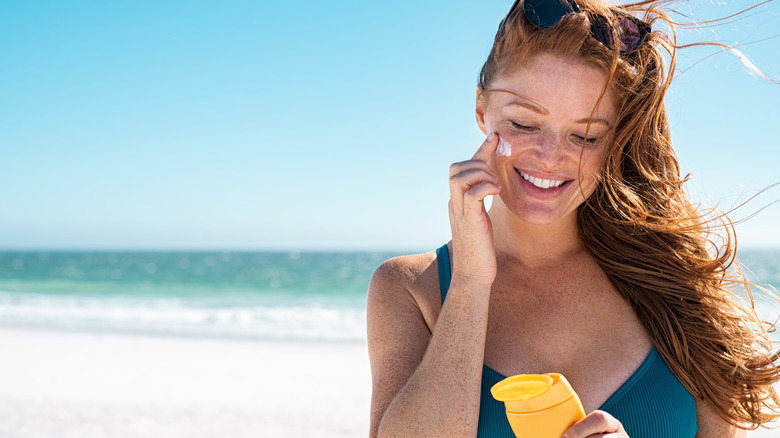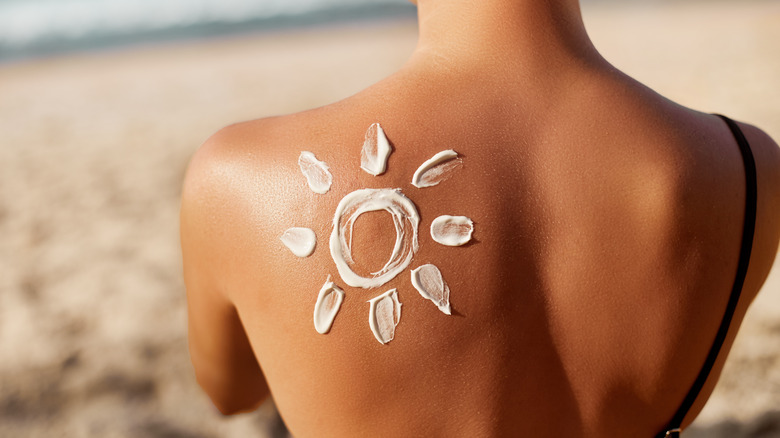Places You're Probably Forgetting To Apply Sunscreen
Even if you consistently put sunscreen on every time you go out into the sun, chances are there are some spots you're missing. Broad spectrum sunscreen protects your skin from the sun's harmful ultraviolet rays, which are a main cause of skin cancer (via Cleveland Clinic). In fact, most cases of skin cancer are preventable if people take proper steps to protect themselves from the sun.
The American Academy of Dermatology recommends applying sunscreen every day you go outside. This is even more important on summer days when the sun is at its strongest. It's important to apply sunscreen on all exposed areas of your body, including your face, neck, and back of hands. Experts say common areas people miss include the ears, lips, eyelids, scalp, and tops of feet. Don't forget your swimsuit and clothing lines either. "Make sure your sunscreen and your clothes or swimsuit overlap to protect your skin," Sarai George, M.D., a dermatologist at MD Anderson Cancer Center, says in an article on the institution's website.
Other steps to protect yourself from the sun
When shopping for sunscreen, make sure to choose one that is water-resistant and is labeled as broad spectrum (via Cleveland Clinic). It should have an SPF of at least 30. Sunscreen should be applied to dry skin roughly 15 minutes before you leave your home. If you wait to lather yourself until you're outside and sweaty, it doesn't protect you as well. Reapply every two hours and after swimming or sweating heavily. Finally, don't skimp on the amount you're applying. A good rule of thumb to follow is that it takes about one shot glass worth of sunscreen to properly cover an adult's body.
In addition to wearing sunscreen, there are a number of other steps you can take to protect yourself from the sun. These include seeking shade when possible and wearing clothes that are UV protected. It's also best to avoid the sun during the peak hours of the day between 10 a.m. and 4 p.m. Finally, wearing sunglasses can protect the sensitive areas around your eyes from sun damage.


